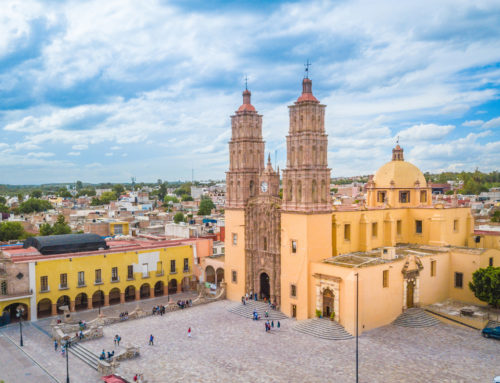The production of alcoholic drinks does have a huge environmental impact. In the Mexican town of Tequila, which is surrounded by agave plants, the process of manufacturing tequila is as messy and over-indulging as the drink itself.
The blue agave cactus fields near the town in the state of Jalisco are a UNESCO World Heritage site, and Mexican law states that tequila can only be produced within these limited regions. The country has also claimed exclusive international right to the word “tequila,” threatening legal actions against manufacturers of distilled blue agave spirits in other countries.
This makes the blue agave plant very precious and tequila even more so, yet agave fields in Mexico are rapidly diminishing due to pollution, increases in acreage needed to grow biofuels, lack of water, and other factors.
Some tequila manufacturers are beginning to take note of the importance of sustainability factors in tequila manufacturing. One such company is Casa Herradura. They have been working on making several aspects of their production as eco-friendly as possible.
In 2007, the company built a multi-million dollar wastewater treatment plant to treat 100% of the water utilized in the production process. The production of tequila is very water intensive – for every gallon of tequila there are 18 gallons of liquid waste. This waste is so acidic that when it is released without treatment it makes the soil unfit for farming.
In 2010, the company installed a second treatment plant which is used to treat the water from the cafeterias, restrooms, bathrooms. The filtered, treated water is reused for irrigation of the agave plants and lawns thereby reducing overall water use.
A waste-to-energy process was installed that fuels a steam boiler with biogas generated by a biological anaerobic reactor, as part of the wastewater treatment plant. This system provides 12% of the energy utilized in the tequila production process.
They have also converted 81,000 tons of agave bagasse into more than 27,000 tons of compost that is used in agave fields and nurseries since 2008.
Casa Herradura has a comprehensive recycling program that ensure that all materials are separated and recycled. This program includes hazardous wastes, generated during the agriculture process. The company has also implemented a “Green Field” program that handles and disposes non-hazardous waste produced during the agave harvesting.
The 140 year old company had recently revamped the look of its bottles and packaging. From the sound of things, they are also doing the same to their sustainability efforts.
Source: TriplePundit.com





